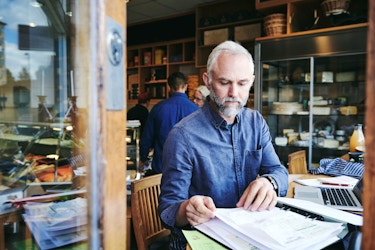
Madeline Fraser launched Gemist, an online “try-before you-buy” custom jewelry company, a year ago because she believed the jewelry industry wasn’t keeping up with technology or with today’s consumers.
De Beers Group, one of the world’s oldest and largest miners and sellers of diamonds, agrees and wants to be part of Gemist’s growth.
De Beers Group Ventures, an investment arm of De Beers, invested an undisclosed amount in Gemist as part of a seven-figure funding round that included Legendary Ventures, Lightspeed Scout and Luma Launch.
The Gemist/De Beers partnership aims to bring the startup’s tech-driven customization, which is trending, to an old-fashioned jewelry sector, while leveraging the know-how and deep institutional knowledge of a legacy brand.
Beyond funding, De Beers is also contributing the time and expertise of Stephen Lussier, its executive vice president of consumer and brands. He will join the Gemist board and help develop various consumer engagement partnerships.
“We’re the perfect fit in a lot of ways from a partnership perspective because we each have different strengths,” Fraser told CO—. De Beers are jewelry industry experts, she said, and “we’re a tech company that happens to sell jewelry.”
“Technology hasn’t been what’s driving the growth of the jewelry industry, and I think it’s time to change that. And De Beers really understands that,” Fraser said.
For its part, De Beers’ investment group likes to make “small investments in young, innovative businesses in the diamond industry downstream and midstream, which have potential to develop and grow,” David Johnson, head of strategic communications for De Beers Group, told CO—.
“The pandemic has further accelerated consumer interest in buying diamond jewelry online and the try-before-you buy and customization approach that Gemist offers is likely to continue to see demand,” he said.
This is Fraser’s third tech startup and it appears to be on track to be her most successful.
The pandemic has further accelerated consumer interest in buying diamond jewelry online and the try-before-you buy and customization approach that Gemist offers is likely to continue to see demand.
David Johnson, head of strategic communications, De Beers Group
Expand
Read on for ways your business can expand your product or service offering.
Carving a customized, ‘try before you buy’ niche
Gemist’s point of differentiation from other online jewelry sellers is that customers can get a replica version of their custom-designed ring or earrings made with inexpensive silver or gold-plate and faux gems to wear and show family and friends before ordering the real thing with fine metals, diamonds or other gemstones.
The inspiration for Los Angeles-based Gemist sprang in 2018, when Fraser wanted to design her own engagement ring, and discovered there was no easy way to do it.
She explored online sites like Blue Nile and visited retail stores but couldn’t find a simple solution. Then a family friend recommended a jewelry business in Los Angeles where she lives. “I basically drew the ring on a piece of paper in a tiny little office in downtown L.A. and crossed my fingers,” Fraser said.
The end result, and the compliments she received, convinced her she could offer a service to other brides to be.
After Gemist launched in beta mode in May 2019, Fraser quickly learned that there was a broader market for custom jewelry.
“We realized very fast that bridal was too niche and that we were on to something bigger,” she said.
From interior design to Shark Tank to jewelry
Fraser got her start as an entrepreneur with Zoom Interiors, an online interior design platform she co-founded in 2013 in her early 20s with two fellow students at George Washington University.
The trio pitched their business on Shark Tank in 2014 and ended up with a $100,000 offer from Barbara Corcoran for a 33% stake. They ended up deciding to part ways with Corcoran rather than give up that much equity.
Zoom Interiors then partnered with Tinder founder Sean Rad, and eventually evolved into online furniture design platform, Hutch. Fraser left Hutch in early 2019.
In founding Gemist, Fraser said, “I wanted to merge the worlds of digital and reality, and that’s where the element of try-on came into play.”
Customers who design a ring online can receive a try-on version of it within a few days and keep it for two weeks before ordering the fine jewelry version.
Fraser said men use Gemist to propose with a try-on ring, then give their fiancée the option of upgrading it to the real thing or changing the design to something she prefers.
“They can order a ring for $100, propose with that, and then the couple will come to us after the yes,” Fraser said.
Customers who want design help get 30 minutes of consultation advice for free. They can get additional help for a $150 deposit, which can be applied to the cost of a purchase.

A pandemic bump
Gemist had done pop-up, in-person retail experiences before the pandemic began, and it plans to resume those this fall, starting with a Gemist shop at the iconic Los Angeles retailer Fred Segal.
The brand has benefited from the surge in online jewelry shopping triggered by the pandemic. Fraser said that this year the company has seen a 585% surge in monthly orders; an over 400% increase in digital users; and a 1200% increase in monthly orders of try-on rings.
For De Beers, the Gemist partnership complements the 132-year-old diamond mining, manufacturing and marketing company’s recent efforts to promote natural diamonds as a sustainable option, and to ease concerns by millennial customers about how diamonds are sourced.
De Beers in October announced an initiative called ReSet to promote the use of natural diamonds, collaborating with jewelry designers to create collections using diamonds that are verifiably, sustainably sourced in ways that benefit the communities where they are mined.
For its part, Gemist plans to use only natural diamonds in its designs. “You now can trace natural diamonds back to their origins and know about the conditions where they were mined,” Fraser said. “We’re excited to help tell that story as we grow our business.”
CO— aims to bring you inspiration from leading respected experts. However, before making any business decision, you should consult a professional who can advise you based on your individual situation.
Follow us on Instagram for more expert tips & business owners stories.
CO—is committed to helping you start, run and grow your small business. Learn more about the benefits of small business membership in the U.S. Chamber of Commerce, here.








